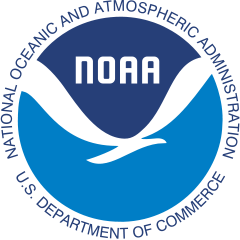Marine Ecosystems

Contacts, for more information:
The conservation and management of coastal and marine ecosystems and the living marine resources within them is a key component of NOAA’s mission. Commercial fish landings in the United States are valued at 4 billion dollars and over 1 million jobs are associated with commercial and marine recreational fishing. Coral reefs alone provide annual net tourism and recreational benefits of 483 million dollars to the U.S. economy . Globally, the estimated value of fisheries and coastal tourism exceeds 240 billion . Climate-driven variations in ocean conditions have profound effects on marine ecosystems. Projected ocean conditions under climate change, including increased ocean temperatures, stratification, and acidity, may have similarly large impacts. Quantitative, reliable prediction of climate-driven impacts on marine resources is essential for effective, ecosystem-based marine resource management.
GFDL Research
GFDL scientists are applying GFDL’s climate and earth system models to meet this challenge with predictions on time-scales from months to multiple decades on local to global spatial scales. Research is also focused on the development of increasing robust, comprehensive, high-resolution models to address limitations of the present generation of climate and earth system models. Reliably predicting climate impacts on marine ecosystems requires both skillful climate predictions and an understanding of the ways – or mechanisms – through which climate influences marine resources. These may be direct effects of changes in ocean conditions (for example, increasing temperature or acidity), shifts in seasonal timing that influence life cycles, or combinations of several effects that propagate through marine food webs. Unraveling these interactions is a complex, cross-disciplinary problem requiring models and data. Strong partnerships with NOAA’s National Marine Fisheries Service and diverse academic partners – including NOAA’s Cooperative Institute for Climate Sciences with Princeton University – are leveraged to provide the breadth and depth of expertise required to address these problems.
Research Highlights
- A predicted pause in the rapid warming of the Northwest Atlantic Shelf in the coming decade
- Ocean biogeochemical fingerprints of fast-sinking tunicate and fish detritus
- The importance of dynamic iron deposition in projecting climate change impacts on Pacific ocean biogeochemistry
- Regional sensitivity patterns of Arctic Ocean acidification revealed with machine learning




